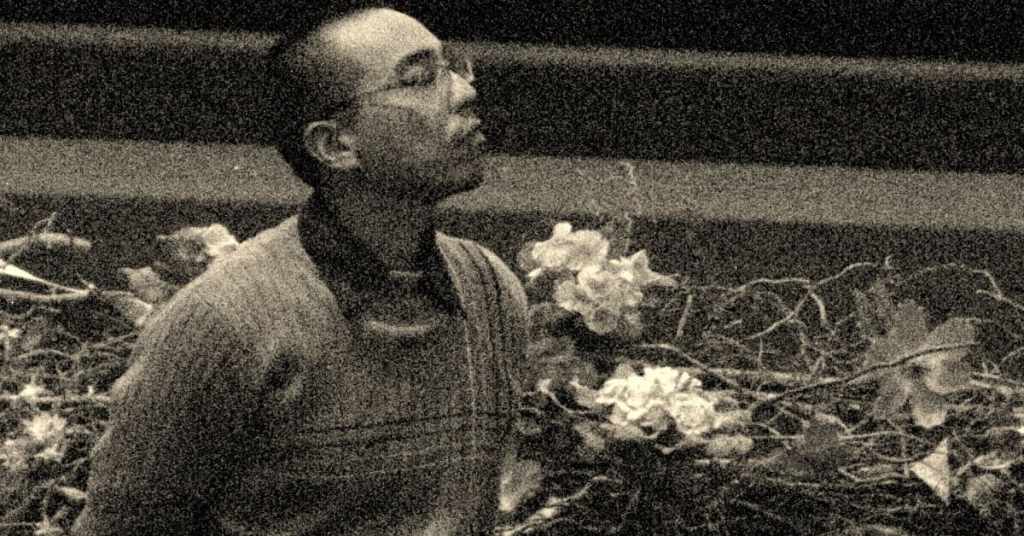After a brief and contained interlude in Italian cinemas, the new film by the Thai filmmaker Apichatpong Weerasethakul landed on MUBI. Presented in competition at 74th Cannes Film Festivalthe film was awarded the Jury Prizefourth prize for the director at the French Film Festival. Memory is Weerasethakul’s first film shot outside Thailand (to be precise in Colombia), but the director does not deny his origins and does not give up his strongly oriental style, shooting a work that fits perfectly into the mosaic of his filmography.
An author who blends the sacred and the paranormal: who is Weerasethakul
Apichatpong Weerasethakul, active since 2000, soon became a giant of festival auteur cinema: in 2002 it won the prize Un Certain Regard with his second film South sanaehatwo years later he wins the Jury Prize for Tropical Malady and, in 2010, with Uncle Boonmee who remembers past livestriumphs in Cannes by winning the Golden palmbecoming the first and only Thai director to win the most coveted prize of the Festival.
In Uncle Boonmee who remembers past lives (available on RaiPlay) it is already possible to understand Weerasethakul’s artistic originality and his consistent link with his own roots, especially the spiritual ones relating to the Buddhist religion. The theme of reincarnation is what the author uses to create a complete cinema: transmits existential messages, elevates spirituality making it first perceptible (and therefore paranormal) and then real (transforming the work into a fantastic genre film), while on the aesthetic level – in addition to taking advantage of its land as uncontaminated nature – it also engages in the use of special effects and prosthetic make-up, making full use of his very personal genre cinema.
Weerasethakul is therefore a festival author, at times particularly complex, but not a purist of the medium, resulting in fact as a experimental artist who carefully takes care of every filmic element that makes cinema the union of several arts; an author so faithful to spirituality that he manages to create highly metaphysical, magical and sensorial works.
Memorythe sound as the fulcrum of the narrative

Weerasethakul’s sensory cinema explodes with Memoryunleashing a roar capable of haunting both the protagonist and the spectator.
Memory it begins with an unclear shot: out of focus, in the shadows, a curtain and sheets, all in total silence, a silence that breaks with a decisive sound effect; the protagonist was sleeping, she wakes up and we discover that the sound effect was diegetic. The events will unfold around that mysterious noise that will torment Jessica Holland (the protagonist played by Tilda Swinton).
It is interesting that in a film composed of long silences, everything revolves around a noise, an element that slings into the quiet routine of a film with extended times and rare dialogues in which the pauses are an integral part of the speech as much as the words. Here too the director uses the key element of the plot as a gimmick to make a genre film (in this case a thriller, but not only), involving the viewer despite a stylistic form that can be defined as the opposite of entertainment.
On a stylistic level Weerasethakul decides to experiment with sound, one of the least considered and understood technical aspects of the seventh art (just think of the chaos that the two categories divided between sound editing And sound mixage); the director’s artistic sensibility leads to enhancing a sometimes imperceptible technical aspect, bringing it on a par with editing, photography and screenplay, making it the fulcrum of the narrative both in terms of technique and content, transforming itself in all respects into the spiritual protagonist of the film, an otherworldly entity with no face or body, perceptible only through hearing.
Tilda Swinton, the face of international cinema

If the sound is the spiritual protagonist of the work, the conventional lead role is the one played beautifully by Tilda Swintonundoubtedly one of the greatest interpreters of contemporary cinema.
An actress who constantly demonstrates an extraordinary acting skill and who, like few others, is able to act with her own appearance: a character actor’s face, from old-time cinema and genre films, capable of always being aesthetically perfect for films with a great visual impact or supernatural spirit.
The real peculiarity of his career is to frequently participate in films by authors from all over the world, as if for intercontinental directors it was the first choice among interpreters in English. Among the best known – excluding Weerasethakul – we find: Luca Guadagnino, Bong Joon-ho, Pedro Almodóvar, Béla Tarr And Guillermo del Toro.
In the case of Memory its dual role should be emphasized since it also appears as executive producer of the film, confirming his interest in a certain type of cinema and the dedication to his profession that goes beyond the usual acting.
The complexity of memory research

Memory it is a complex and enigmatic film, a work in which a research conducted by sensorial memory is consummated, where the characters – entering the filmic frame built by long static sequence shots – represent beats of life.
The search becomes persecution and the mystery becomes tormentcausing an empathic reaction of the viewer who will feel alienated as when one is stubborn about something that is only in one’s mind, transmitting the feeling of someone who has a word on the tip of his tongue but cannot pronounce it.
Nobody can understand the mysterious noise, nobody can replicate it; this remains exclusively in the memory of those who came into contact with us, an event existing but real only through experience (in the most philosophical sense of the term), that is in the direct contact between subject and event, two elements connected only by sensory perception.
Follow us on Instagram, TikTok, Facebook And Telegram to always know what to watch!
We don’t have big publishers behind us. Our only masters are the readers. Support young, free and independent culture: sign up for the FR Club!
Related
Memory, Weerasethakul’s metaphysical and sensorial cinema

